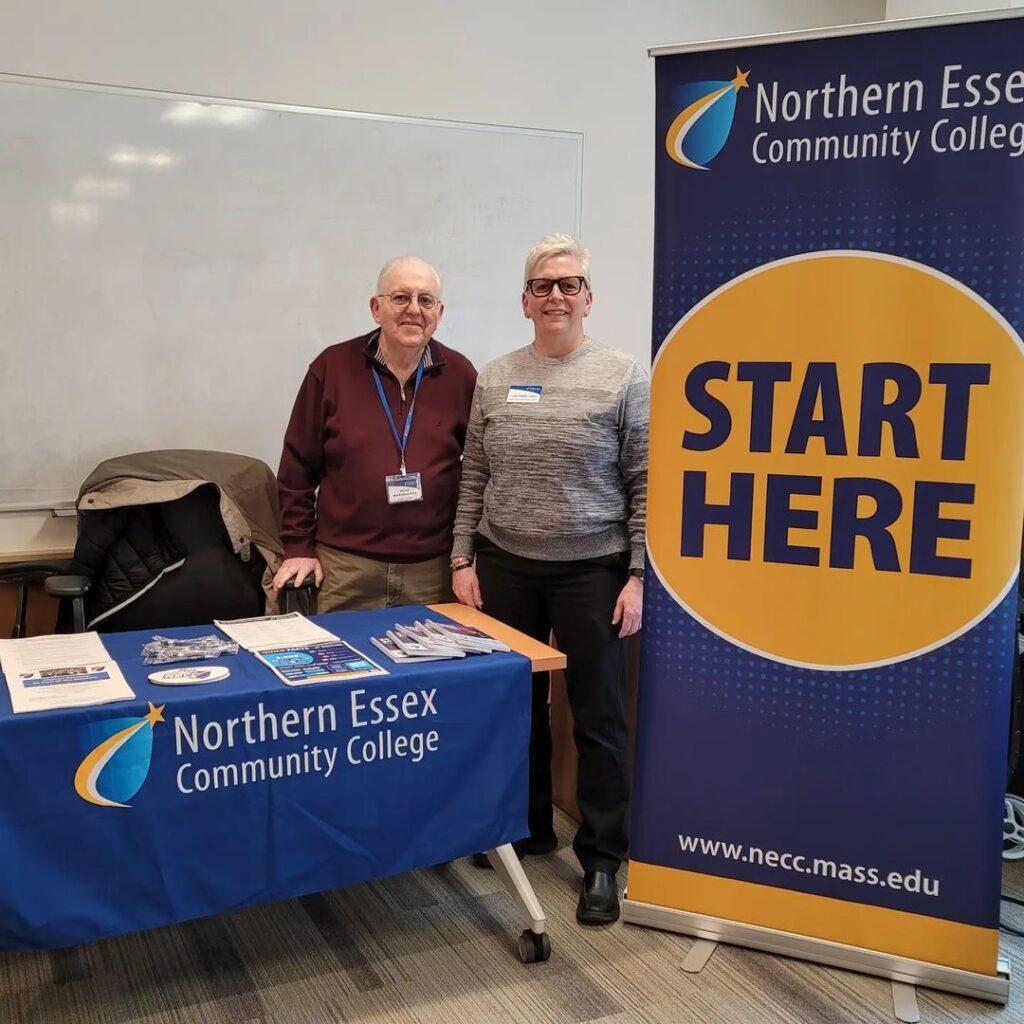The Stories of Us: A New Perspective Inside the Classroom
This article is part of a new, regular series called “The Stories of Us,” highlighting the justice, equity, diversity, and inclusion work of Northern Essex Community College students, faculty, and staff.
Brian MacKenna-Rice and Lisa Fabbri-Lopez have helped people from all walks of life in their work with individuals in crises and recovery. As they’ve developed Human Services courses at Northern Essex Community College, they’ve been mindful of ensuring different perspectives are represented.
“We work in a field where this is an underpinning of what we do,” says the Human Services Program Coordinator MacKenna-Rice.
Both recognize there’s always more work to be done regarding justice, equity, diversity, and inclusion (JEDI) in the classroom. Recently, they attended a workshop hosted at Salem State University called Principles for Anti-Racist Community-Engaged Pedagogy. Over two days, they explored topics about developing more inclusive course materials, reflecting on individual and systemic racism, and creating compassionate and reflective classrooms.
“I loved meeting them,” MacKenna-Rice says of the other workshop attendees. ‘They were a lot younger than me and a lot smarter than me. And I enjoyed that. It was a nice two days.”
“He represents a generation that is not always deemed as being open to this,” adds Fabbri-Lopez, a Human Services faculty member and co-lead of the NECC Center for Professional Studies.
“I’m old enough that I remember Selma. And I remember the Birmingham bombings, and I remember the Civil Rights March. People being struck down with Billie clubs just because of their skin color,” recalls MacKenna-Rice from his teenage years. “For me, you can’t do enough to help people understand how unjust that is.”
MacKenna-Rice and Fabbri-Lopez say the workshop helped them build upon their personal and professional experiences to ensure that courses are accessible and equitable. One example of this work, says MacKenna-Rice, is using course materials representing the student population. “I added a unit on BIPOC contributions and influence on what we do. We’re trying to get people involved in a field that’s about helping people. And we can’t do that if we can’t represent all people.”
This fall semester, they hope a change in class location will also increase accessibility and equity. All 100-level Human Services courses will be taught on the Lawrence Campus, and 200-level classes will be held on the Haverhill Campus. “Then next year, we’ll switch that around. So philosophically, a student could do all the core courses entirely in Lawrence or Haverhill. This is equity. Everyone has the same opportunity because they have the same starting point,” says MacKenna-Rice.
More changes are in the works, such as utilizing Spanish-language resources and developing a new certificate program. In the meantime, the pair plans to work closely with NECC Chief Officer of JEDI Francellis Quiñones and the NECC Center for Equity and Social Justice to identify more professional development opportunities in the JEDI space.
“We work out in the field. And we learn that anybody can talk about this, but this is about behavior and what are you doing about it?” reflects MacKenna-Rice. “Let’s not just pretend it’s a philosophy book. Let’s understand it’s about life and human beings.”








